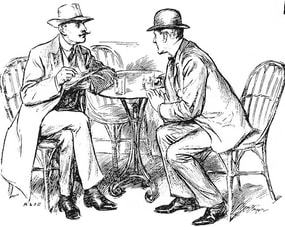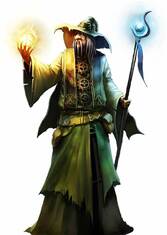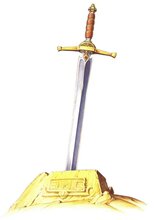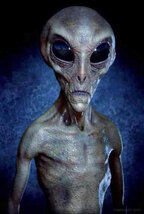|
For the next few weeks we are featuring blogs by guest bloggers on a wide range of subjects related to reading and writing. All the opinions expressed are those of the blogger and are not endorsed by Selfishgenie Publishing. Enjoy!  It was one of those conversations that only happen in pubs when drink has been taken. They usually don’t make sense the next day and are quickly forgotten. Well, usually they’re quickly forgotten. The subject was fantasy fiction. You know the sort of thing: wizards, orcs, elves, dragons, enchanted swords etc. My friend said he didn’t read that sort of book because he wasn’t able to suspend his disbelief. I was duty bound to argue against him because… well, because we were in a pub and that’s what blokes do when they’ve had a pint or two. But then, afterwards, I thought about it a little bit more. Why would it not be possible to suspend disbelief and read fantasy fiction?  We suspend our disbelief every day of the week over some matter or other, particularly when it comes to the sorts of thing politicians say. So what’s so hard about suspending one’s disbelief over a story that is to be found on the fiction shelves? No one is saying its true (well a few deranged people maybe, but I’m not going to count them). All we fantasy fans are saying is that it’s an escape from the real world and into another. The stories are as valid as they are in any other genre. Indeed, they can be found in genres other than fantasy. They usually take the form of a battle of good against evil, during which quests are undertaken or duties carried out. Honour is high on the agenda, as is bravery, selfless devotion and many other altruistic character traits. Perhaps this is what’s wrong. Perhaps these things are so lacking in our modern world that some people can’t believe that they might exist in any world. There is an old tradition of fantasy fiction, of course, though it isn’t always recognised as such. First, we go all the way back to the Ancient Greeks and Homer’s epic stories in the Iliad and the Odyssey. These may be based on some factual events, but they also contain a lot of fantasy.  Then we have Arthurian legend. Now, on the surface we have a story about men battling against evil, which forms the core of many a good novel. But we also have a wizard (Merlin), a witch (Morgana), a magical sword in a stone (Excalibur), a mysterious lady in a lake (Viviane or Nimue) and so on. In its basic form it’s no more fantastic than Tolkien. After that we get to the legend of Robin Hood. There is no evidence that he ever existed and what few historical bits of evidence that suggest someone resembling him did exist, don’t portray a picture of the hero of the medieval peasants that robbed from the rich to give to the poor, but a petty criminal who robbed from anyone and kept the loot for himself. OK, more of a legend than a fantasy, but one we buy into. There may be no dragons or orcs, but they’ve been replaced by the Sheriff of Nottingham and his men. We mustn’t forget the Daddy of them all William Shakespeare. In his plays we have a ghost in Hamlet, another one in Macbeth along with three witches, in The Tempest we have a fairy and some sort of troll (Caliban) and of course A Midsummer Night’s Dream which is littered with fairies and in which Bottom is given a pair of donkey’s ears, as though that were normal.  Charles Dickens isn’t averse to using ghosts if it suits his purpose, as he shows in A Christmas Carol, while Bram Stoker gave us Dracula and Mary Shelley provided us with Dr Frankenstein’s hand-built monster. None of these books or plays were aimed specifically at children, which is where my friend thinks the target audience for most fantasy fiction lies. Ghosts, vampires and monsters may be seen as belonging to the horror genre, but they appear in fantasy as well. Now, I’m probably going to upset a few diehard fans here, but I’m going to suggest that the great British Hero James Bond is no more believable as a character than Bilbo Baggins. What is my justification? I hear you ask (I have good hearing). Let’s look at the evidence. Cars that turn into submarines, wristwatches that contain lengths of garrotte wire, cars with ejector seats and so on and so forth. But that’s all boy’s own gadgetry and no more of a fantasy than a sword that glows blue when there are orcs around. At the time when Ian Fleming wrote the stories, the technology for those gadgets didn’t exist, but that didn’t stop him fantasising about them.  But the real fantasy is Bond himself. A suave, debonair killer who’s also a babe magnet and can get into a fight with half a dozen Kung Fu masters and walk away leaving them in a crumpled heap. He’s been shot so many times he must resemble a colander. He’s fallen from trains, planes and ski slopes. While Ian Fleming and the writers who continued the franchise never claimed magical powers for Bond, does this not require just as much suspension of disbelief as it does to read about Gandalf? Bond may not have “One Ring to rule them all (etc)”, but that was because Q never quite got round to finishing it (But just wait for the next movie – you read it here first).  There is, of course, another literary genre that is just as fantastical and requires just as much suspension of disbelief. I mean Sci-Fi. People who will gladly suspend disbelief to accept the premise of strange creatures inhabiting worlds far from our own are sometimes reluctant to do the same for stories containing wizards and dragons. Why? Science does suggest that life may exist on other planets. Indeed, it’s been said that it would be a strange universe if life didn’t exist on other planets. However, science has no idea what form it may take and what its capabilities might be. This is the space that the sci-fi writer inhabits, if you’ll pardon the pun. The space where anything is possible providing the author doesn’t actually ignore the laws of physics. But sci-fi writers do that all the time as well. Time travel, warp speed, sub space, hyperspace, dilithium crystals. Do these sound familiar? Which ones are made up and which does science accept as being possible? No I don’t know either. Dilithium does exist, you can Google it, but can you use it to power a space ship? So, where’s the difference between fantasy and sci-fi? Why is one believable to my friend but the other not? So where do you stand on this issue? Do you read fantasy novels? If not, can you tell me why you don’t? Just comment below. Would you like to be a guest blogger for Selfishgenie? Just email us at our general enquires address, which can be found on our Contact page and tell us what your blog would be about. If you enjoyed this blog, or found it interesting, then be sure not to miss future editions by signing up to our newsletter. We'll even send you a free eBook when you do. Just click the button.
0 Comments
Leave a Reply. |
AuthorThis blog is compiled and curated by the Selfishgenie publishing team. Archives
March 2025
|
 RSS Feed
RSS Feed